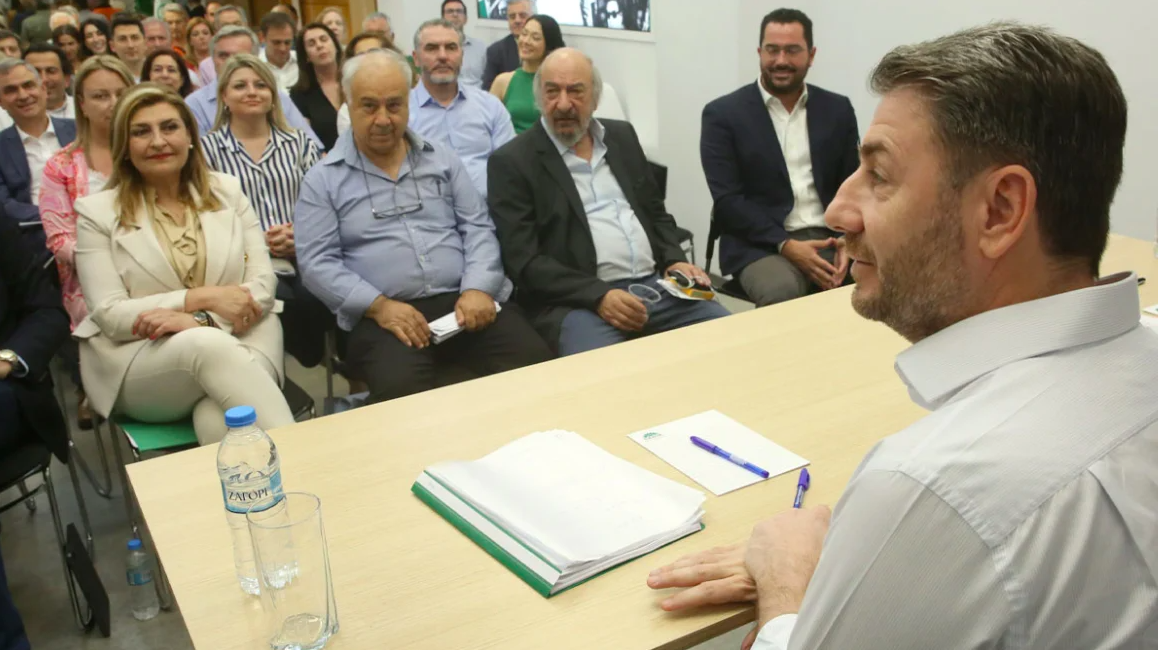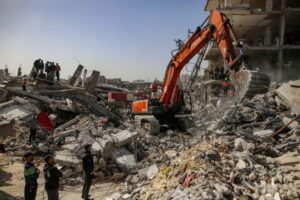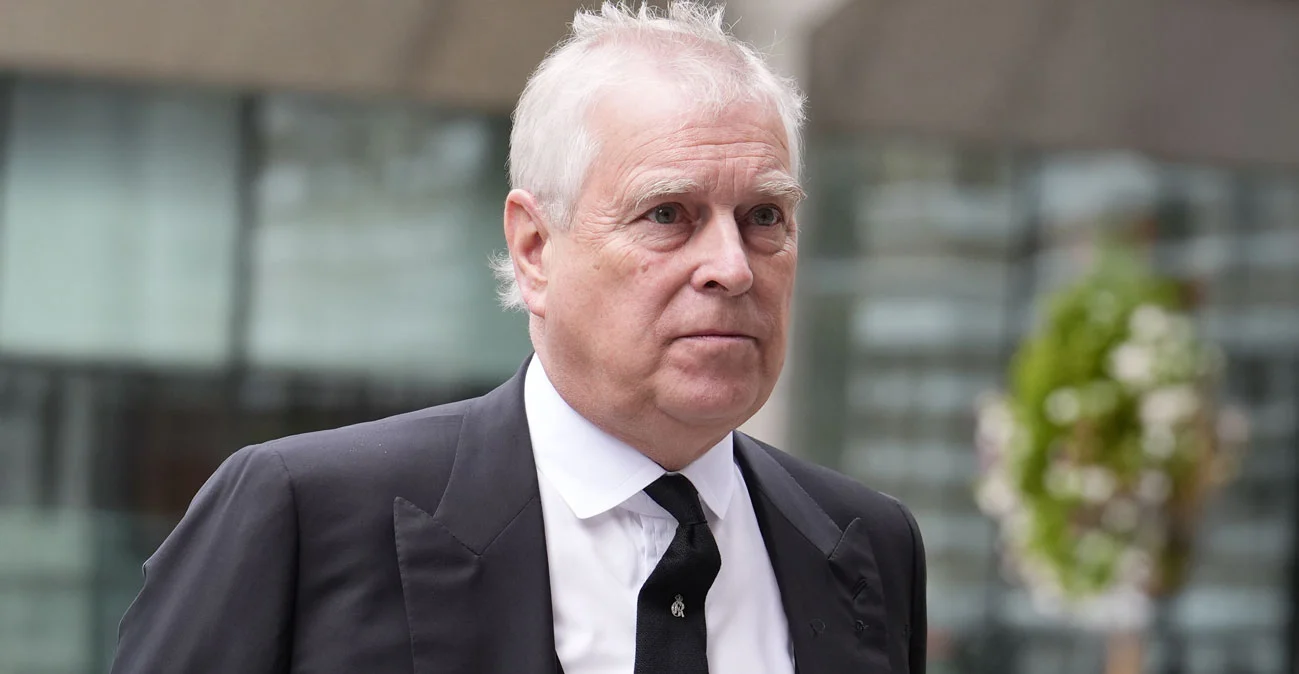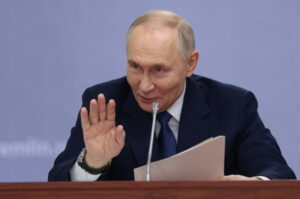Top executives and MPs of PASOK are pushing Nikos Androulakis towards immediate elections, aiming to thwart any attempt by Harilaou Trikoupis to delay the party’s dynamic restart until 2025. This movement forms a strong bloc advocating for elections within 2024.
As the marathon and stormy meeting concluded last night, it became clear that PASOK’s leading figures are preparing for a second, tougher round of confrontation with Harilaou Trikoupis. Despite Androulakis’s numerical advantage in the Central Committee, even his staunch supporters are now joining the powerful bloc that demands swift decisions for a necessary change of direction in June. The call for immediate elections was made clear during yesterday’s meeting of the Political Council and the Parliamentary Group. A proposal was made to organize the electoral process soon after PASOK’s 50th anniversary, with some suggesting September 3rd as a potential starting point. This date could serve as an opportunity for all candidate leaders to present their political platforms.
Catalyst Threats of Expulsions
The proposal for early elections has not been finalized, but the threat of expulsions has acted as a catalyst, accelerating developments and rallying support around the demand for a quick restart. Many believe the party’s poor performance in the European elections, where PASOK remained in third place despite Androulakis’s goal of becoming the official opposition, necessitates urgent action. Critics accuse the current leadership of political weakness, failing to create the conditions needed to elevate PASOK in the domestic political scene.
During the meeting, prominent executives expressed their dissatisfaction with Androulakis’s leadership. Kostas Skandalidis, Petros Efthymiou, Thodoros Margaritis, Michalis Katrinis, Litsa Liakoulis, Dimitris Manzos, Milena Apostolaki, Nadia Giannakopoulou, and Odysseas Konstantinopoulos all voiced their concerns. They criticized the leadership for managing defeat poorly and called for unity through meaningful actions rather than threats of expulsions. Suggestions included holding immediate elections and fostering participation to rejuvenate the party. Filippos Sachinidis, in a biting tone, compared the situation to Kim Jong Un’s regime, emphasizing the need for responsibility and action. George Papandreou sent a message of unity, while Pavlos Christidis highlighted the elephant in the room, signaling the need for concrete answers from the Central Committee, which will meet on June 30.
Androulakis’s Responses
Nikos Androulakis faced the group criticism with the press representative, Thanasis Glavina, by his side, rather than the usual presence of the party’s Secretary, Andreas Spyropoulos. Spyropoulos, who was also a candidate for MEP but was not elected, stayed until the end of the meeting but avoided addressing the floor or discussing his resignation, which Androulakis did not accept on the night of the European elections. Many other questions remained unanswered regarding the “roadmap” Androulakis intends to follow. Andoulakis further expressed that he will strive to ensure that the proposal to the Central Committee is as unifying as possible. He further expressed that those intending to contest the leadership to declare their candidacy specifically stating, “I want PASOK and the broader democratic faction to seize this moment. I will do everything in my power to achieve this,” clarified Haris Doukas, signaling his likely candidacy with the statement: “I have been and remain a target of attacks. But I am undeterred. I will not back down.”
Both Pavlos Geroulanos and Manolis Christodoulakis are steadily considering bids for leadership, although seasoned insiders do not rule out the emergence of additional rivals to Nikos Androulakis.
In his initial speech, the PASOK leader claimed responsibility for the election outcome. However, his aggressive tone during his rebuttal against the “dissenters” was seen as a “half-step,” aimed at diffusing tension in the room. This attempt at easing the strain was unsuccessful, leading to a torrent of attacks on the leadership from various executives. Few anticipated that even his former “mentor,” Kostas Skandalidis, would attend the session to dismantle the leadership model that relies on threats of expulsions at such a critical juncture for the party.
“I have made so many expulsions, what more can I say? It’s incredible! What will the party do if the organs democratically decide, and the next day we face the same issues? Do we need to go back to where we were 15 years ago?” Androulakis responded regarding expulsions, adding: “Political integrity, in my humble opinion, means truly believing in and serving what we publicly state here. It doesn’t mean suddenly creating a sense of complete humiliation for our people by declaring failure and proposing something else without clarity. We must describe this ‘something else’ and not stage a charade for it to emerge hidden.”
Further Scenarios
Yesterday’s proceedings revealed clear support for Odysseas Konstantinopoulos’s proposal, submitted a week prior to the Secretary and Political Council members, for a leadership election by the end of the year. Rumors from Harilaou Trikoupis about “ballots even in July” were quickly dismissed, well before the various factions convened yesterday. Kostas Skandalidis, Petros Efthymiou, Nadia Giannakopoulou, Filippos Sachinidis, Thodoros Margaritis, Tonia Antoniou, Efi Chalatsi, Chara Kefalidou, Milena Apostolaki, Manolis Christodoulakis, Haris Kastanidis, and others aligned against the “presidential” faction insisting on statutory invocation. “Presidential” supporters like Nikos Milis, Dimitris Mantzos, and Olga Markogiannaki spoke of the need to formulate a governance proposal without hastening procedures—only one MP, Manolis Chnarakis from mountainous Rethymno, supporting Androulakis’s stance, argued: “In Crete, we beat both Mitsotakis and Kasselakis. President, hold elections in July to measure their strength at high noon.”
“We will not achieve our goal by blaming each other for efforts during the European elections,” Pavlos Geroulanos explained earlier, emphasizing unity and avoiding divisive rhetoric. “Everyone here gave their best, as did hundreds of other officials across Greece. No one went on a white strike; no one worked harder than others. Thinking otherwise divides, not unites us. Also, we won’t succeed by hoping Attica will secede from Greece,” Geroulanos added, criticizing Androulakis’s Sunday night remarks about Attica’s “bad” result versus the “good” outcome in other regions.
In the coming hours, the “green” offices are expected to rally around formulating a proposal and timeline for the elections, including intermediate steps. Haris Doukas proposes “election from the base, now,” while other members do not rule out an extraordinary Congress or Conference later. Harilaou Trikoupis has yet to finalize its strategy, but the maneuvering space is becoming increasingly limited.
Ask me anything
Explore related questions





